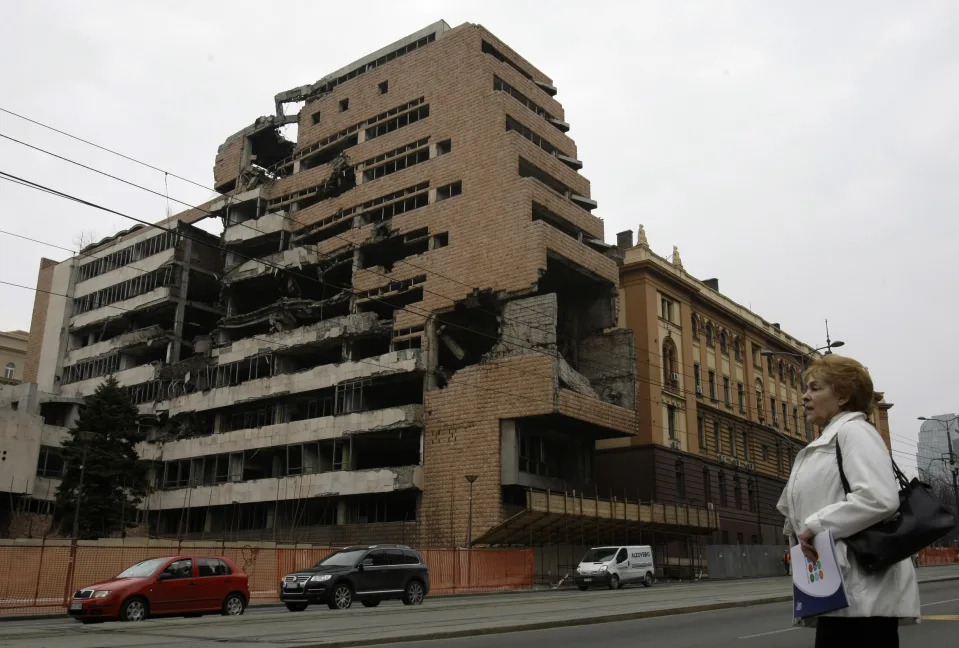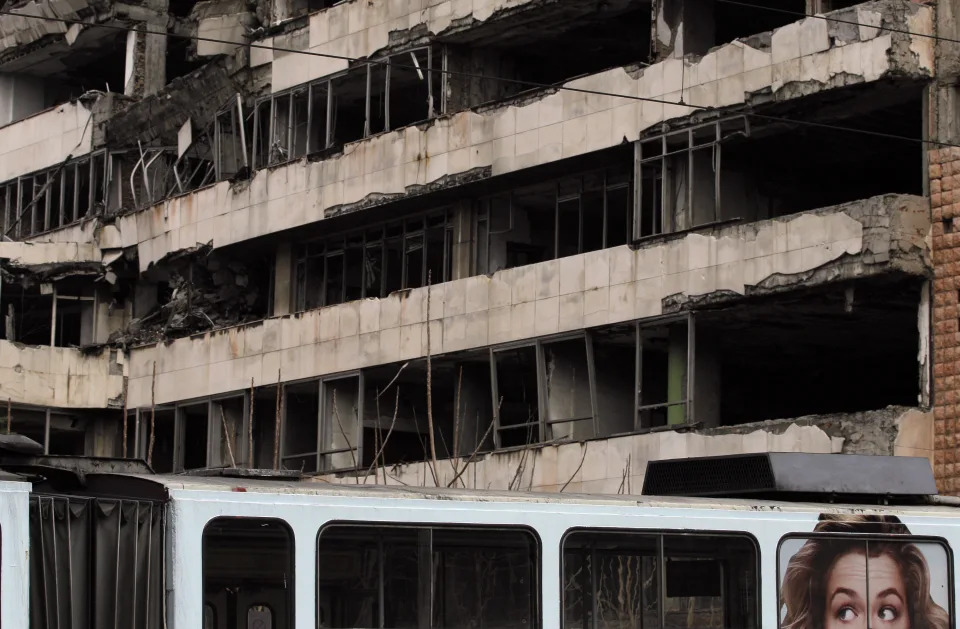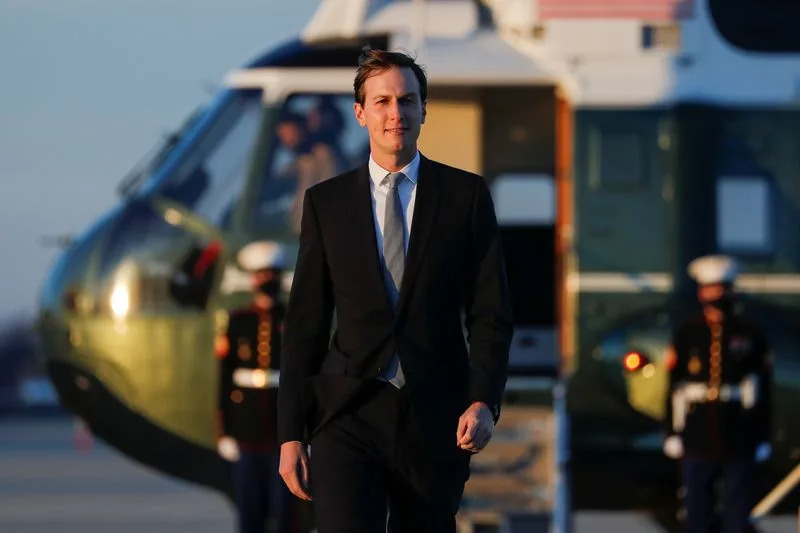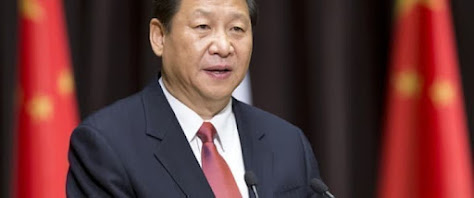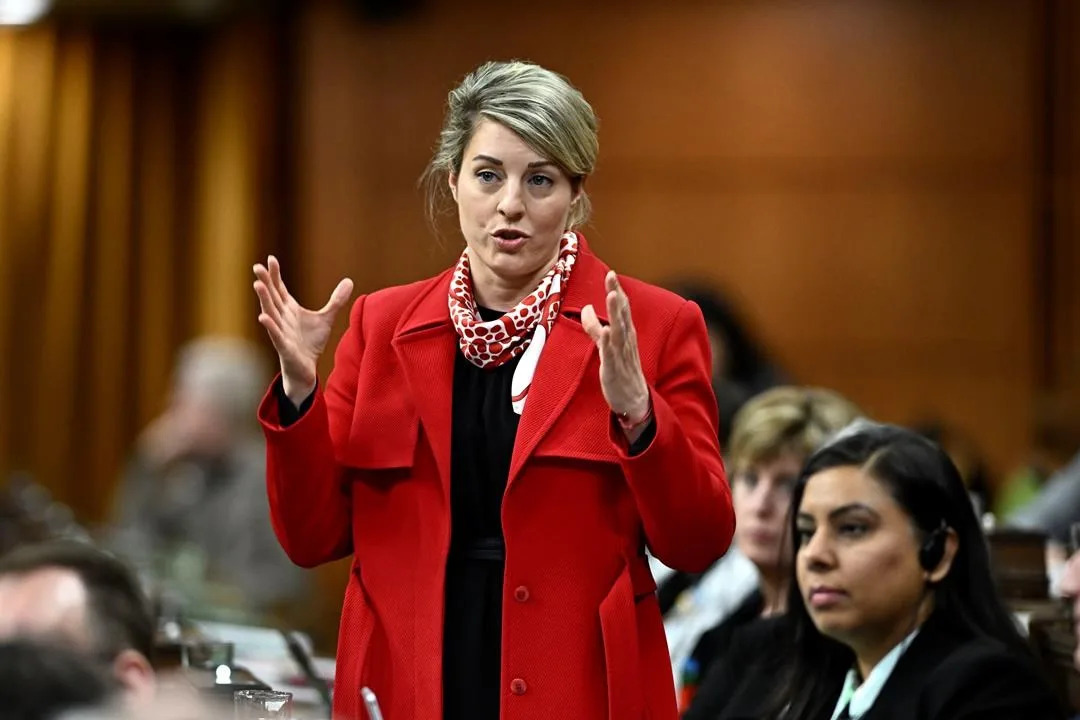UK
PA Reporters
Fri, 17 May 2024
Donald Trump has “the right concern” about European defence spending, David Lammy said as he resisted calls from Labour’s London Mayor Sadiq Khan to challenge the Republican presidential candidate on his views.
The shadow foreign secretary said some countries are not committing enough money and that the UK could share a “common cause” with the US in pushing for that to “improve”.
Mr Trump prompted alarm in western capitals earlier this year when he suggested he would encourage Russia to “do whatever the hell they want” to Nato allies failing to meet their financial obligations.
Mr Lammy has sought to build diplomatic relationships with both Democrats and Republicans ahead of the US election this year, promising that Labour would work with whoever returns to the White House to preserve the transatlantic “special relationship”.
However, in an interview with Politico published earlier this week, London Mayor Mr Khan said Britain should call out Mr Trump as a “racist, sexist” and “homophobe”.
Sadiq Khan has been heavily critical of Donald Trump (PA)
Asked whether he would heed his party colleague’s advice, the shadow foreign secretary told an Institute for Government event on Friday: “This is a profoundly serious moment and it requires seriousness. That seriousness means that the special relationship between the United Kingdom and our American friends is core not just to our own national security, but security of much of the world.
“So, just like Wilson, Nixon, Blair, Bush, whoever is in the White House in a big election year in the United States or whoever is in No 10 in a big election year in our own country, of course we must work together.
“The truth is that you’re going to be hard-pressed to find any politician, particularly politicians who were on the back benches, who haven’t had something to say about Donald Trump.
“I take very seriously the responsibility of being on the front bench and the responsibility of finding common cause on behalf of the national interests of this country.”
Mr Lammy also expanded on recent remarks in which he described the former president’s approach to Nato as “misunderstood”, saying he had been referring specifically to European defence spending.
Donald Trump has criticised some Nato members for not paying enough on defence spending (AP Photo/Wilfredo Lee, File)
“He (Mr Trump) in his own unique way, I think, is concerned about burden-sharing across Europe – that is a concern shared by my friend Barack Obama, it is a concern that has been echoed since Kennedy, and it is the right concern because it is still the case that there are European countries not spending as much as they should on defence and that needs to improve, and that is something where the United Kingdom can join common cause with the United States,” the shadow minister said.
It marks a shift in tone from 2017 when the Labour frontbencher described Mr Trump as “racist” and a “Nazi sympathiser,” saying he would protest on the streets if the then-president visited the UK.
Mr Trump has repeatedly denied accusations of racism levelled against him but railed against what he describes as “political correctness.”
The London Mayor said earlier this week: “(Donald Trump is) a racist. He’s a sexist. He’s a homophobe. And it’s very important, particularly when you’ve got a special relationship, that you treat them as a best mate.
“If my best mate was a racist, or a sexist or a homophobe, I’d call him out and I’d explain to him why those views are wrong.”
Mr Lammy also indicated that Labour would not pursue a trade deal with the US unless the White House changed its position because “it feels pretty clear to me that America has set its face against trade deals”.
“That’s not particular to the United Kingdom, but the political establishment, both Democrat and Republican, is not focused on trade deals at the moment and therefore I think unless that changes we would be expending a lot of effort unnecessarily,” he said.
Elsewhere in his remarks, Mr Lammy made a series of pledges aimed at putting expertise at the heart of the UK’s foreign policy agenda.
He promised that Labour would establish a “college of diplomacy”, teaching courses in areas such as languages and artificial intelligence (AI) which would be open to all of Whitehall as well as foreign mandarins “from friendly countries” as part of a Foreign Office shake-up.
The college, which would replace the Diplomatic Academy, would seek to set the “global gold standard” for both diplomacy and development, Mr Lammy said.
Leading figures from the arts, culture and academia would also be brought together as part of a new “soft power council”, he told the event.
The council would work alongside the British Council and BBC World Service to advance the UK’s national interests, he said.
Mr Lammy said: “At present neither the FCDO (Foreign, Commonwealth and Development Office) nor the National Security Council is delivering the sharp, coherent international strategy which the country urgently needs.
“Without such strategy, we should expect to be buffeted by the tides of superpower competition, not only between the United States and China, but also by the many rising powers who are threatening our competitive advantages economically and militarily.”
'Progressive realism':
UK Labour lays out foreign policy pitch
Peter HUTCHISON
Fri, 17 May 2024

David Lammy is likely to become foreign secretary if Labour wins
the general election
(Paul ELLIS)
Closer relations with Europe, continued support for Ukraine, and a desire for Palestinian statehood: Britain's likely next government is outlining its foreign policy plans -- and much is similar to the current administration's.
If opinion polls are correct, the UK's main opposition Labour Party will defeat the ruling Conservatives at a general election due later this year and return to government for the first time since 2010.
Labour's foreign policy priority will be forging a closer relationship with European neighbours, rebuilding bridges since the country's acrimonious exit from the EU.
At the heart of that approach will be a new EU "security pact" that Labour wants to negotiate with the 27-member bloc.
The accord would drive "closer coordination across a wide variety of military, economic, climate, health, cyber, and energy security issues," Labour's international affairs spokesman David Lammy wrote recently in Foreign Affairs magazine.
It would also complement both parties' "unshakeable commitment to NATO", added Lammy, who wants Britain to "double down on its close relationships with France, Germany, Ireland, and Poland".
"The next election is an opportunity to turn the page on the post-Brexit rancour of the past," Lammy, 51, told reporters in London on Friday.
"I want to get back to structured dialogue with the European Union on the issues that matter."
Labour has enjoyed double-digit leads over the Conservatives for about 18 months, so Lammy has been laying out his vision for UK diplomacy.
He calls it "progressive realism" that combines the fact-based approach of arguably Labour's most famous foreign secretary, Ernest Bevin, with the idealism of Robin Cook, who served as Britain's top diplomat in the late 1990s.
Bevin helped establish NATO and pushed for Britain to acquire nuclear weapons, while Cook oversaw successful interventions in Kosovo and Sierra Leone before resigning from Tony Blair's cabinet over the invasion of Iraq.
"Our diplomacy needs to rediscover the art of grand strategy," Lammy said Friday.
Analysts say much of Labour's current positioning on foreign affairs is about providing reassurance after it was perceived as weak on security and defence under left-winger Jeremy Corbyn's leadership.
Its stance on the Israel-Hamas war in Gaza has echoed Sunak's, as has its commitment to backing Ukraine in its fight to repel Russia's invasion.
Labour is expected to continue with the Conservatives' more robust approach to China and shares the same aim to return aid spending to 0.7 percent of Gross National Income only when economic conditions allow.
- Multilateral institutions -
"The policies that they've set out are very, very similar to the government's," Bronwen Maddox, director of the Chatham House international affairs think-tank told AFP.
She expects to see a change in tone, a different migration policy since Labour has pledged not to follow Sunak's plan to deport irregular migrants to Rwanda, and a move to get closer to Europe.
Labour leader Keir Starmer, who voted to remain in the EU in the 2016 referendum, has said Beethoven's "Ode to Joy" -- the European Union anthem -- best sums up his party.
But he has ruled out returning to the European single market, customs union or free movement if Labour wins power, with Brexit still a toxic political issue in the UK.
Labour does plan, however, to pursue a British-German defence accord similar to the Lancaster House agreement that the UK signed with France in 2010.
Lammy suggested that a youth mobility scheme proposed by the European Commission recently making it easier for Britons aged 18-30 to live, study and work in the EU could be included in a future relationship.
Brexit saw the UK withdraw from the EU's Erasmus student exchange programme, then propose its own global version, the Turing Scheme.
"That's part of the discussions that we'll enter into," said Lammy.
Prime Minister Rishi Sunak, who voted to leave the EU, has yet to announce the date of the election but it must be held by January 28, 2025.
If Labour wins, analysts expect to see Britain engage more with global bodies.
Sunak became the first UK leader in a decade to skip the UN General Assembly last year while Tories regularly call for Britain to quit the European Convention on Human Rights.
"There will be greater focus on the reform of international institutions," and "a renewed push for the UK to promote its international leadership on climate policy", Sophia Gaston of the right-wing Policy Exchange think-tank told AFP.
pdh/phz/rlp



